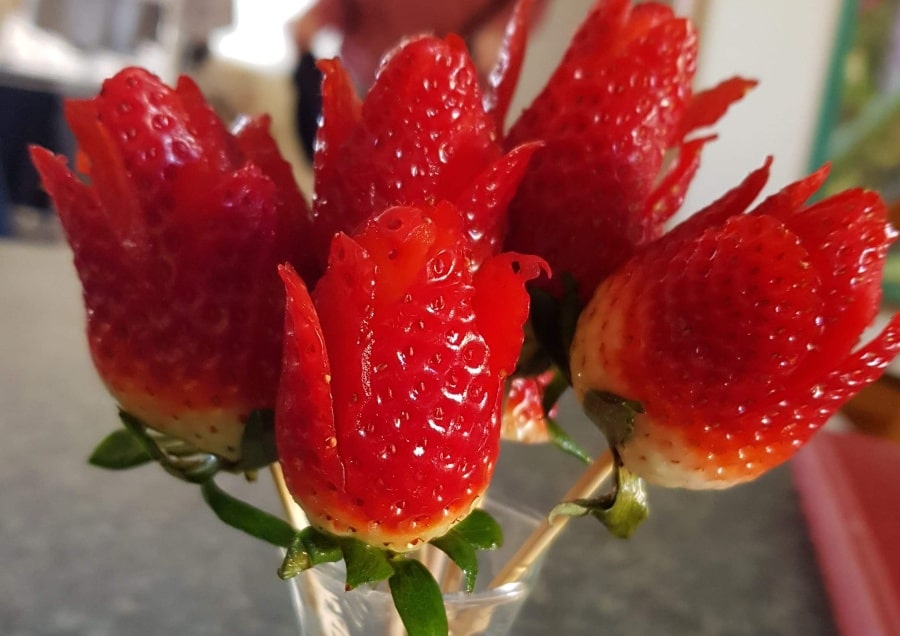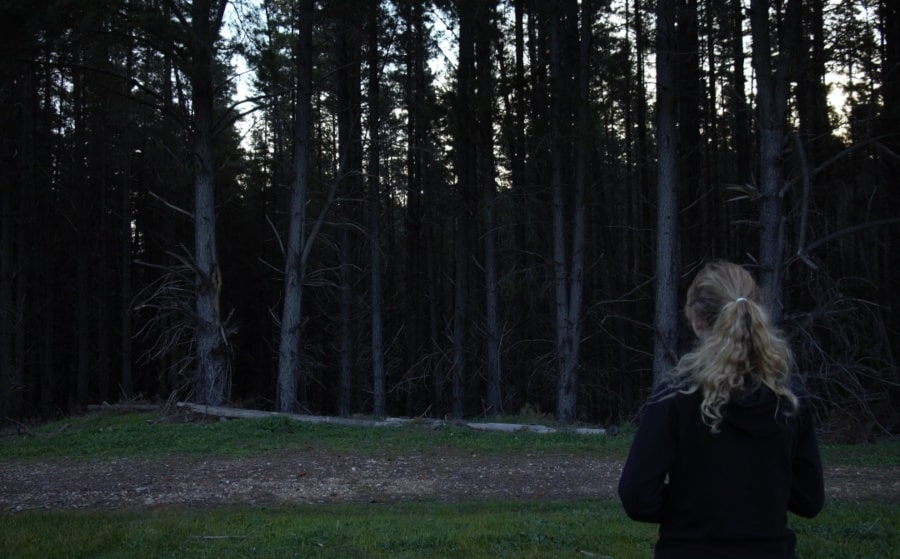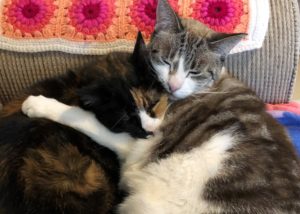When someone mentions OCD to you, you might have images in your mind of obsessive hand-washing to the point of flaky skin, or someone being extremely organised and lining things up. These can definitely be the case for some people with OCD, but for me and others, it’s more insidious, under the radar, and you probably wouldn’t know I had OCD if I didn’t tell you (or you were highly observant or lived with me for multiple years).
Potential trigger warning: This post contains examples of OCD from my life and discussions of mental health difficulties; I don’t want to put any additional OCD thoughts into people’s heads and be responsible for an additional OCD manifestation or further mental health difficulties.
I’ve been reluctant to write about this or my other issues, because I never want my issues to become the defining ‘thing’ that people know me for. Like, oh it’s that lady that writes about OCD. I’ve been weighing up the cost of this blog potentially becoming focused around my issues and be the ‘thing’ that people know me for, and the benefit of potentially helping someone else by sharing my experiences. The latter has now won, and I’ve made peace with the fact that OCD is part of my (suspected) neurodivergent experience.
In this article I’ll be talking about the basics of OCD, the subtypes of OCD, and personal examples from my own life of how this manifests. I’ll also talk about how I’ve navigated OCD.
I hope that this post brings some awareness and acceptance to the OCD experience, some solace and feeling of okayness for people reading who may have OCD, and helps in some way.
Disclaimer: the information in this article is intended for educational purposes only and is not suitable for or intended to be used as a diagnosis.
Understanding OCD
As I understand it, OCD stands for Obsessive Compulsive Disorder and is comprised of obsessions (thoughts and mental processes that are often detrimental and distressing to those experiencing them) and compulsions (actions that tend to follow obsessions with the intention to relieve the anxiety that the distressing thoughts create). The experience of someone with clinically significant levels of OCD is where it significantly impacts someone’s life activities negatively.
Each individual will experience OCD differently, and at the time of writing this there are thought to be, four, five or even seven different subtypes depending on who you ask, and even that can be variable. Identifying an OCD subtype can be really helpful in getting the right support and help, as well as helping you understand yourself or a loved one better.
Story Time! My OCD Subtypes
My OCD subtypes include harm obsessions and checking compulsions (also called responsibility OCD), relationship OCD, past events OCD, and then some other fun ones that crop up from time to time related to health/illness or contamination.
I ruminate a lot and checking is the most engaged in compulsion. While I do exhibit some symmetry and organising OCD, it isn’t to the point of causing distress; it’s a pleasurable activity for me to organise my space, and I do so not out of wanting to alleviate a distressing thought or feeling, but out of enjoying being organised and tidy. I like orderliness, enjoy shifting furniture around and organising and re-organising my space. If something is kind of messy, it doesn’t cause an overwhelming amount of distress that I feel I need to fix immediately.
OCD in Action: Real Life Examples
So here are some real life examples (and like I said before, proceed with caution if you think you may be susceptible to triggers):
1) Did I accidentally steal something?
I can go shopping and literally not touch anything and walk away with the thought, did I steal something without realising? This can lead to two compulsive actions: one is to check my bag, pockets or anywhere else I may have put the stolen goods (sigh); and two is to mentally track back exactly what I did in the store as a way of mentally checking that I didn’t steal anything.
If I have this thought now after shopping, I don’t check. Not checking my bag is easier than not mentally checking (often by playing back the ‘movie’ of what happened in the store in my mind), but I’m getting better. Easier said than done, but, like a muscle, the more I don’t engage in the compulsion to check, the less I worry about stealing something.
I’ve never stolen anything so I have a pretty good track record, but that knowledge doesn’t magically make the theft worry any easier.
2) What if I give people food poisoning?
Another harm-related obsession surrounds food. I have concerns that I may get sick from certain foods especially new foods or if I’m the one cooking. On top of that I have a bad relationship with food in general (from food trauma growing up, which I can go into separately, sensory issues, and other factors).
But I figure, ah well, I don’t really want to get sick but at least if I’m just cooking for me it’ll only harm me.
Cooking for other people, even if it’s baking biscuits, I get an intense fear that I’ll give people food poisoning or make them sick, as well as question myself as to whether I put in the right amount of such and such ingredient. I’ll go back through the list of ingredients and mentally go back through the steps to try and coax out the memory of using that ingredient so I know I put it in.
One year I made some ANZAC biscuits for a friend, and he took them and shared them with his family. I was terrified. I checked up on him and asked each day, something along the lines of, “how’s your family? Are they all well?” trying to be subtle about it.
With this one, I’m getting there. I’m starting with baking for others, and each of the behaviours I engage in whether it’s physical checking (the recipe or on people who’ve eaten my cooking afterwards) or mental checking, I’m doing less and less. I’m working up to cooking meals for family and for my partner (who doesn’t give a shit about getting sick or not) with no or at least reduced distress.

3) Did I really just drive without incident or did I hit something and not realise?
Some people actually categorise this as “hit and run OCD”. I laughed when I read about this one because I could relate to it so much, not because I think it’s funny.
In getting to the root cause and core of my driving phobia, it comes down to OCD; fear of doing harm, and not trusting my own judgement and my own memory when it comes to driving so checking.
When I drive, I prefer to have a passenger with me (this can be referred to as a “safety behaviour”), so they can reassure me that I didn’t hit anything and I drove fine.
Driving on my own is just a recipe for obsessive thoughts about causing harm and damage with my driving without realising, and then running it back in my mind what happened on the drive, and questioning the gaps in my memory as if maybe I hit something in those times but I can’t remember.
Long story short, I don’t drive for this and other medical reasons, so I’ve shelved it for now and may work on this in the future.
4) Have I turned the stove off/locked the door/made sure the cats aren’t in a cupboard??
This relates again to the fear of harm; the fear that by not making sure I carry out a certain behaviour, it could potentially cause harm to me or another, because of my lack of common sense or stupidity or whatever. I can be pretty harsh on myself sometimes.
Each concern relates to a different fear: the stove relates to fires starting. Locking the door (or making sure multiple times that I have actually shut the garage door) and the windows at night is about burglars, serial killers or rapists breaking in and doing any of those things.
One day on my way to Uni (which was a three hour round trip involving four buses), midway through my first bus trip, I was suddenly struck with a thought, I didn’t check where Sophie and Pippi [my cats] were before I left! I may have accidentally shut the cupboard door after they snuck in there while I wasn’t looking… And on it went like that and I decided there was only one thing for it: I needed to go back.
So I got off the bus and got on another one back home. When I got home, the cats were waiting for me by the front door, all was well, the cupboard doors were closed, and the lights were off. I decided to stay put and not attend the lecture that day.
This hasn’t happened again, but I’m still plagued with thoughts of did I turn this off, did I leave that on, did I shut that, blah dee blah. It drives me nuts. To not engage in the compulsion to check, physically or mentally, takes some energy.
5) Am I really in the right relationship?
After all these fear of harm examples, we’re due for a change of pace. Introducing, relationship OCD.
Prior to my current relationship, I was romantically interested in two people at the same time. Which I think can definitely be felt, and anyone who tells you that you can only truly love one person at once has been brainwashed by society and the monogamy-based romance novels and media. With polyamory not an option, I had to choose between these two people I loved. And so I chose (this kind of loving two people choice scenario has happened more than once in my love life).
After the choice, I was plagued with thoughts of, did I make the right choice? What if I’d chosen differently? Is this current partner really right for me? Am I really right for them? I felt guilty thinking this way when I was in a great relationship. I felt ashamed as well. And I felt really bad for hurting the other person with my decision.
So for two years I muddled through these confusing feelings. I tried to talk to a therapist who made things worse. I don’t know why I went to see her twice when once was probably too many times. I then touched base with a therapist I’d seen previously who mentioned three words that snapped me out of whatever it was I was experiencing, ‘the OCD mind.’ That was exactly it! It wasn’t that I was questioning all this because I wasn’t in the right relationship yadeeyada, but because of my propensity for OCD thoughts like these where I question my judgement and ruminate on things!
Because relationships are so important to me, and I love talking about romantic relationships, it makes sense that OCD would latch onto and present itself in something that was so important to me.
This was a case where the knowledge that it was the OCD mind allowed me to step back and experience some calm in my mind and emotions and actually start enjoying the person I was with rather than getting caught up in second-guessing and OCD ruminating.

How else do I navigate OCD?
So with all these distressing situations and the related bullshit that comes with it, how in heck do I navigate and cope with OCD?
Firstly, each situation of OCD I experience requires a slightly different and tailored approach, and I’m doing pretty well on my own navigating it as a whole and in its individual subparts. But here are some things I’ve tried that have helped:
1) Therapy
The first thing I’d recommend is seeking out a therapist who suits you. Having had various issues for most of my life, I feel at this point I’ve been over-therapised, and now I have the tools it’s just a matter of using them. This is why I can help myself now. But it wasn’t always like that, so if you feel it would be beneficial, talking to a therapist that you get on with and get good vibes from whether in person, online or over the phone, can be a great place to start and a great place to seek support for your individual needs with navigating OCD.
If you’re like me and have gone through a lot of therapy, then seeking out support groups or doing your own therapy that suits you and using the strategies you know is good. Sometimes it’s useful to think outside the box and not limit yourself to talk therapy, as this isn’t always helpful. There came a time for me when talking about things and discussing strategies and implementing them wasn’t enough. I realised I had to move my body, try different things that maybe the psychological community wouldn’t necessarily approve of, and double down on my spiritual practices and connect to something greater.
Therapy is a great place to start, and you can decide from there where you go next.
2) Gradual exposure and challenging thoughts
Something that a therapist will probably take you through for navigating OCD is to gradually expose yourself to having the obsession without acting out the compulsion (if you have both obsessions and compulsions).
They’ll probably also take you through some CBT, cognitive behavioural therapy, to work with the thoughts that provoke the actions. This was helpful for me. It might be for you too.
This strategy isn’t just good for OCD, but any prolonged mental difficulty I can think of and that I’ve had (except C-PTSD, that requires a different set of navigational equipment). I think of CBT and gradual exposure (or systematic desensitisation with an exposure hierarchy) as an experiment when it comes to the behavioural component. I feel like talk therapy is good for the cognitive aspect and looking at the stories we’re telling ourselves, the ruminations that we have, and the destructive unhelpful thoughts that go undetected and therefore unchallenged. When it comes to looking at and changing behaviours, seeing it as an experiment with the mindset of ‘let’s see what happens’ takes some pressure off and taps into that health curiosity.
3) Being kind and self-compassionate
This has been the most important navigational strategy for me; treating myself with kindness, being self-compassionate (both the nurturing and the fierce side of self-compassion that Dr Kristin Neff talks about), as it makes everything else a lot smoother. The kinder I am to myself, the less barriers I come up against and the more okay I feel.
4) Recognising the purpose of OCD in my life
OCD for me is just part of life and how my brain is wired. I’ve accepted that, and I’m okay with that.
With that, I do feel like OCD in some aspects is playing a certain purpose in my life, and maybe it would be helpful for you with a therapist or on your own to identify what purpose OCD may be playing in your life.
For me, I had a chat with OCD, and it turns out that in a lot of cases but not all, OCD is trying to keep me safe from further shame and embarrassment (emphasis on the word trying here). He thinks he’s doing a good job, because I’m prone to shame-spiralling and one of my core beliefs is that I’m embarrassing (which I feel is shame’s sibling). So OCD comes along and makes sure that I don’t forget things, I check things, so that I’m not so susceptible to shame and embarrassment and judgement from others for any ‘bad decisions’ or lapses in judgement/common sense. He thinks he’s saving me from a shame spiral or other uncomfortable emotion. I’ve tried to tell him that it’s not necessary, but I just get the same response: “Oh no, I insist.”
His misguided attempts to stop me feeling shame and embarrassment cause me distress. That being said, there’s a reason my brain structure is wired for OCD, and I do believe now that however I am is how I’m meant to be. It may not make sense and may be downright distressing at times, but one day it will make sense. And if it never makes sense in my lifetime, that’s fine.
If we can recognise that OCD and anything else we may be experiencing is showing up with a purpose, then that can be invaluable to living the lives that we want.
Final Thoughts
OCD can be distressing, debilitating, and impede our ability to live the lives that we want. But I hope you can also recognise that there may be an important purpose and many lessons in navigating life with OCD, and start to feel that you’re not alone, navigation strategies are available for you, and support is closer than you think.
If you have any questions or comments, reach out to me in the comments below or at [email protected].
For extra content, updates and other good stuff, you’re warmly invited to join The Quiet and Curious folk community by signing up to the email newsletter below:
Lots of love from,




